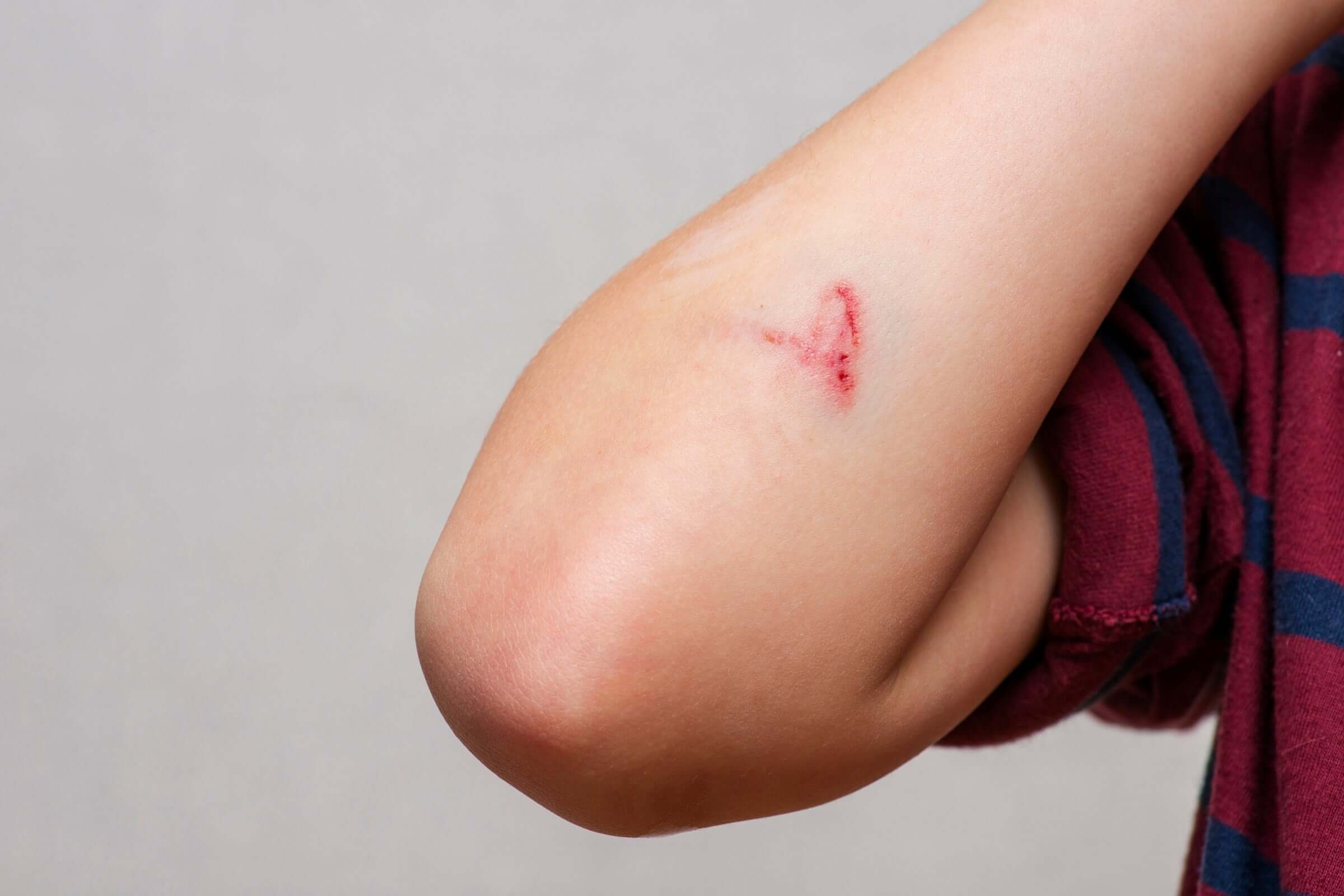The Healing Power of CBD and its Role in Wound Healing

Wound healing is a complex and fascinating process that our bodies undergo to repair damaged tissue. It involves various cellular and molecular mechanisms, and the use of topical treatments has been a longstanding practice to aid in this natural recuperative process.
One intriguing and promising candidate in the realm of wound healing is cannabidiol (CBD), a non-psychoactive compound found in the cannabis plant. In this blog, we will explore the role of CBD in wound healing, with a particular focus on its application as a topical treatment.
Understanding Wound Healing
Before delving into the specifics of CBD, it's essential to comprehend how our bodies naturally heal wounds. Wound healing occurs in several distinct but interconnected stages:
Hemostasis: This initial stage involves blood clotting to minimize blood loss. Platelets and coagulation factors play a vital role in this process.
Inflammation: Inflammation helps remove bacteria and damaged tissue from the wound site, creating an environment conducive to healing. Immune cells, such as neutrophils and macrophages, are heavily involved in this phase.
Proliferation: During this stage, new tissue begins to form. Fibroblasts generate collagen, the building block of skin, and new blood vessels (angiogenesis) develop to provide nutrients to the healing tissue.
Remodeling: The final phase focuses on improving the strength and flexibility of the newly formed tissue. Excess collagen is removed, and the tissue matures.
CBD: A Brief Overview
CBD is a naturally occurring compound found in cannabis and hemp plants. Unlike its cousin, delta-9-tetrahydrocannabinol (THC), CBD does not induce the characteristic "high" associated with cannabis use.
CBD has gained significant attention in recent years for its potential therapeutic benefits, including its role in pain management, anxiety reduction, and its anti-inflammatory properties.
CBD products such as Full Spectrum CBD Oil and gummies are gaining popularity for their therapeutic wellness benefits, including stress and anxiety management, among others. CBD topicals are also becoming increasingly popular for their skin-specific effects when applied topically.
The Role of CBD in Wound Healing
When it comes to wound healing, CBD has shown promising potential, primarily through its anti-inflammatory, analgesic, and antibacterial properties. Human studies have shown that using topical CBD on wounds seemed to help them heal better. However, there were some differences in how much CBD they used and how long they used it, and people's responses varied.
In one case, they used topical CBD on 20 patients with skin issues twice a day for three months. They noticed that the patients' skin became more hydrated and elastic, the wounds looked better in pictures, and the patients felt relief from their symptoms.
In another small study with only three patients who had a skin condition, they used topical CBD at different times and for different durations. It also seemed to make their wounds feel better.
While these studies indicate that using topical CBD on the skin might help wounds heal better, it's important to note that their reliability is hampered by the small number of participants and the differing ways the studies were conducted.
Although larger studies are currently in progress, these smaller studies have put forth several theories regarding how CBD might play a role in the process of wound healing.
Anti-Inflammatory Effects: CBD interacts with the endocannabinoid system (ECS), which plays a vital role in regulating various physiological processes, including inflammation. By modulating the ECS, CBD can help reduce inflammation at the wound site, which is crucial in the early stages of wound healing.
Pain Relief: Chronic pain and discomfort are common issues associated with wounds. CBD's analgesic properties may help alleviate pain and discomfort, making it easier for individuals to manage their wounds and engage in daily activities.
Antibacterial Properties: CBD exhibits antibacterial properties, which can be particularly beneficial in wound management. By reducing the risk of infection, CBD can help wounds heal more efficiently.
CBD Topical Application for Wound Healing
One of the most popular methods of using CBD for wound healing is through topical application. CBD-infused creams, ointments, salves, balms and even soaps, are readily available in the market and offer several advantages for wound care:
Targeted Application: Topical CBD products can be applied directly to the affected area, allowing for precise targeting of the wound. This ensures that the healing properties of CBD are concentrated where they are needed most.
Non-Psychoactive: Unlike oral CBD consumption, topical application does not lead to systemic absorption, meaning it won't result in any psychoactive effects or affect cognitive function. This makes it a safe choice for all age groups.
Easy Integration into Daily Routine: CBD topicals can be seamlessly integrated into one's daily skincare routine, promoting consistency in application and facilitating ongoing wound care.
Minimal Side Effects: Topical CBD products are generally well-tolerated, with minimal side effects. This is particularly important for individuals with sensitive skin or those who may be allergic to certain compounds.
The Best Way to Show Your Wound Some Love
While there is still much to learn about the precise mechanisms of CBD's involvement in wound healing, the existing body of research and anecdotal evidence suggest that it holds significant promise. However, it's crucial to note that CBD should complement conventional wound care practices rather than replace them.
Ensuring the proper care of wounds is essential for a successful recovery. Among the fundamental approaches to wound treatment, maintaining cleanliness holds paramount importance as it helps prevent infections and accelerates the healing process.
For a gentle way to tend on your delicate wounds, consider using a gentle soap like Tub Therapy Soaperstar CBD Soap in Tea Tree Mint. Not only does it clean your wounds safely, this handcrafted soap is made with real Tea Tree oil and CBD oil, both known for their superb anti-inflammatory, antibacterial and analgesic properties.

The healing magic of CBD oil and Tea Tree Mint oil combined: Tub Therapy Soaperstar CBD Soap in Tea Tree Mint, $16 each
Tea tree oil, derived from the leaves of the tea tree (Melaleuca alternifolia), has been used for centuries for its potential healing properties, particularly on wounds. When applied to wounds, it can help prevent infection by killing or inhibiting the growth of harmful bacteria. This is essential for wound healing, as infections can delay the body's natural healing process. Tea tree oil also possesses antifungal properties, making it effective in preventing and treating fungal infections that can sometimes occur in wounds.
Our verdict?
CBD's potential role in wound healing, particularly through topical application, is an exciting and evolving area of research and practice. Its anti-inflammatory, analgesic, and antibacterial properties make it a compelling candidate for aiding in the wound healing process.
As more scientific studies are conducted and our understanding of CBD deepens, it is likely that CBD topicals will become increasingly integrated into wound care routines, offering new hope for those seeking effective and natural approaches to healing. However, it's crucial to proceed with caution, relying on the guidance of medical professionals and selecting high-quality products to ensure the best possible results.



